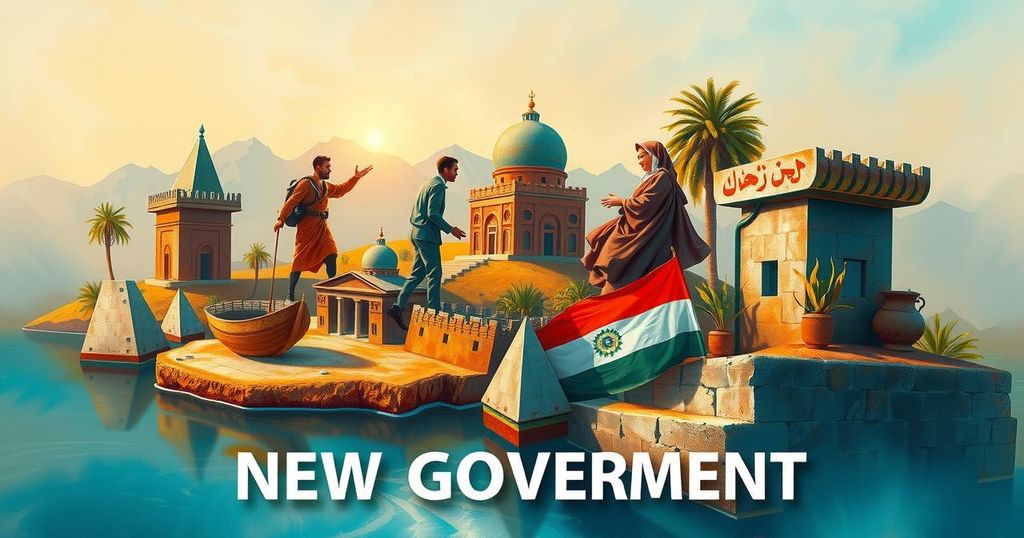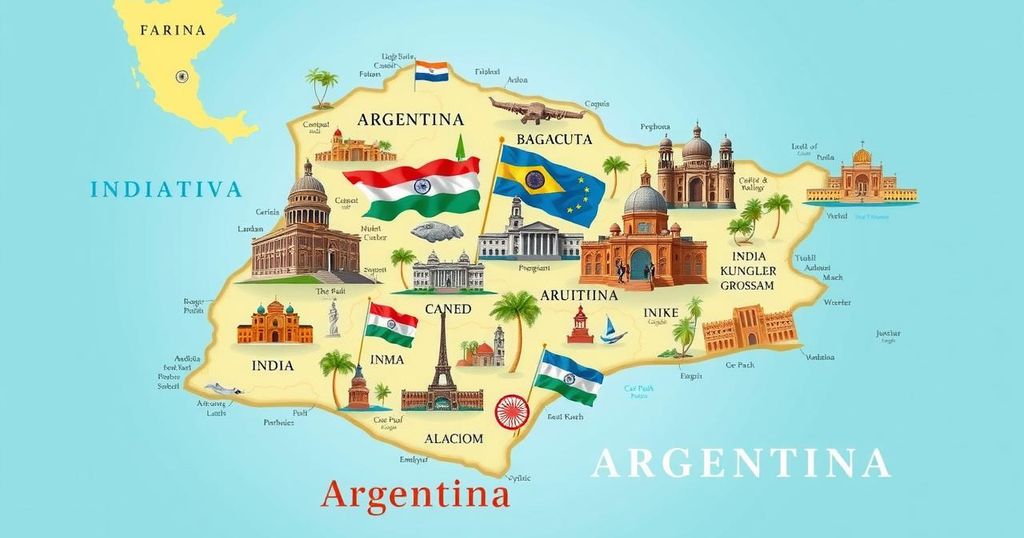Syria Inaugurates New Transitional Government Amidst Ongoing Stability Efforts
Syria has inaugurated a new transitional government comprising 23 members, reflecting religious and ethnic diversity four months post-Assad’s removal. The government will serve a key role in promoting stability, addressing humanitarian issues, and engaging with Western countries regarding sanctions. Key appointments include Hind Kabawat and Raed Saleh, while the Cabinet aims to prioritize peace and inclusivity in Syria’s political landscape.
On Saturday, Syria inaugurated its new transitional government, approximately four months following the removal of the Assad family from power. This 23-member Cabinet is notable for its religious and ethnic diversity and represents the first government during the country’s planned five-year transitional period. It replaces the interim administration established after Bashar Assad’s exit in early December.
Under the terms of the temporary constitution signed by interim President Ahmad al-Sharaa, the government does not possess a prime minister; instead, it will be supervised by a secretary general. This newly announced government, which coincided with Eid el-Fitr marking Ramadan’s conclusion, features several newcomers, alongside the retaining officials in foreign affairs and defense posts.
In a speech regarding the cabinet formation, President al-Sharaa stated, “The formation of a new government today is a declaration of our joint will to build a new state.” Defense Minister Murhaf Abu Qasra emphasized his aim to create a “professional army from the people and for the people.” Notably, the Cabinet does not incorporate members from the U.S.-backed Syrian Democratic Forces.
Among the newly appointed ministers is Hind Kabawat, a Christian activist and long-time opponent of Assad, now serving as minister of social affairs and labor. Raed Saleh, the former head of the Syrian Civil Defense, assumes the position of minister for emergency disasters, while Mohammed Terko, a Syrian Kurd, will be minister of education. Additionally, Mohammed al-Bashir, who previously led the interim government, has been appointed minister of energy to rejuvenate the devastated electricity and oil sectors.
The primary focus of this government will be to conclude ongoing conflict and instill stability in a country that has experienced significant violence in recent weeks, particularly against the Alawite minority. The involvement of minority sect representatives, including women, serves to convey a message to Western nations regarding inclusivity in Syria’s political framework.
The formation of a diverse governmental body aims to persuade Western powers to reconsider the strict economic sanctions imposed on Syria over a decade ago. Reports indicate that around 90% of the Syrian population lives below the poverty line, with many facing reductions in food aid related to the ongoing violence.
Concurrent with the government’s announcement, the U.S. State Department issued a warning regarding potential threats during the Eid el-Fitr festivities, cautioning U.S. citizens about risks to embassies and international organizations in Damascus.
The swearing-in of Syria’s new transitional government marks a significant step towards restoring stability after the removal of the Assad family from power. This diverse Cabinet aims to address ongoing conflicts, support inclusive governance, and potentially alleviate longstanding economic sanctions. The government’s challenge lies in reconciling the needs of various ethnic and religious groups while addressing the humanitarian crises resulting from years of war.
Original Source: www.local10.com




Post Comment